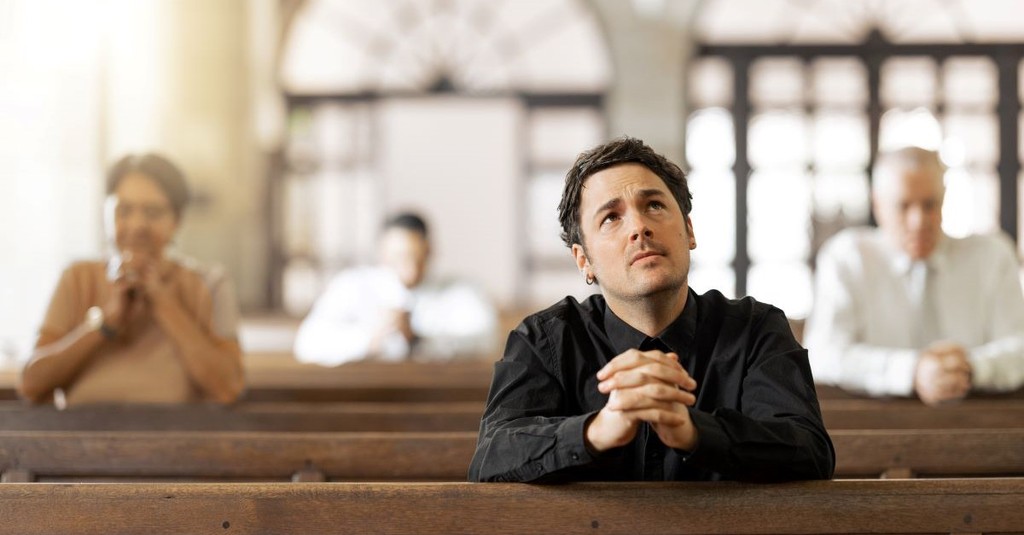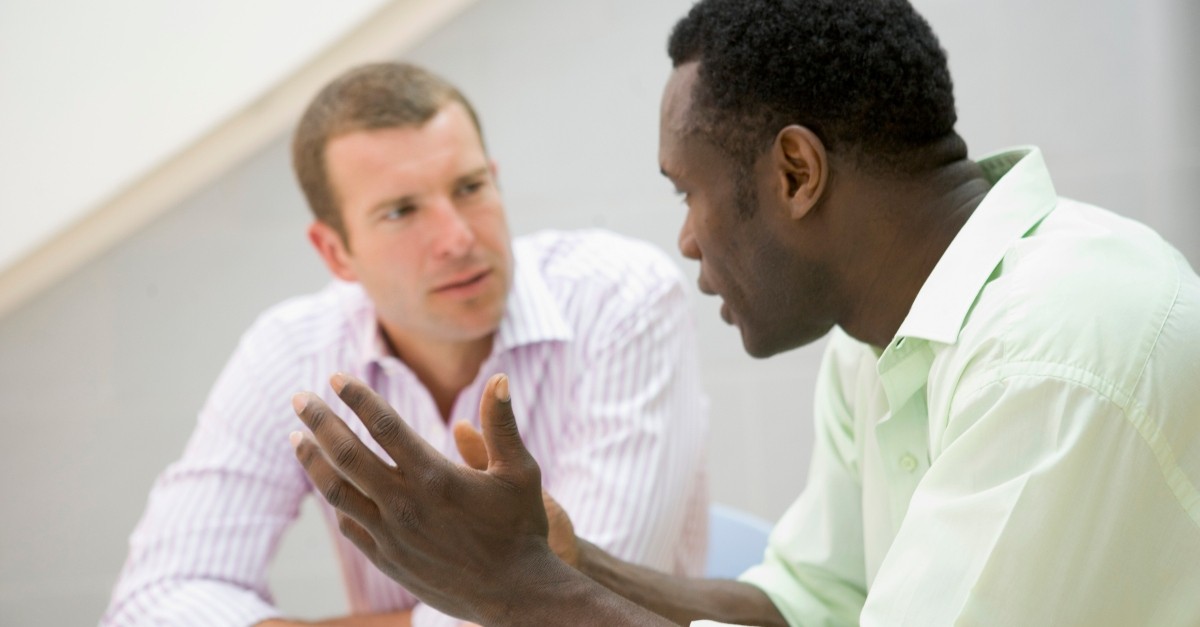
One of the most difficult things to face in life is when the church hurts you. Part of the reason it is so challenging is that you expect church to be a safe haven. It’s one thing when people who don’t profess to know Jesus hurt you. It’s an entirely different scenario when those who know Jesus do the same thing. In boxing, there is a saying that the punch that hurts the worst is the one you don’t see coming. For many of us, this is exactly how church hurt feels. It’s the punch you don’t see coming or even expect and that is the one that does the most damage.
If you stay in church long enough, then at some point, you may get hurt. Not because people are trying to hurt you, but because people are human. In their human nature, even though they are Christians, they have the capacity to hurt you. However, this means the same potential lives in you, too. The reality is if you are in church long enough, you could hurt someone, too. So, what do you do when you are the one who has been hurt? The steps you take in the aftermath and how you immediately respond are critical. If you don’t respond correctly, this can set off a chain of reactions that can be difficult to overcome.
Photo Credit: ©GettyImages/PeopleImages

Step # 1 - Acknowledge It
When you get hurt by a church, sometimes you stop and ask in wonder, did that really happen? I remember being in a situation where someone made accusations about me that were not only untrue, but completely far from the truth. My initial response was shock, as I could not believe what had just happened. After the initial shock wore off and I recognized that what had happened was real, my shock turned to tears. My tears were my way of acknowledging the situation and not living in denial. This is a crucial step because you cannot begin the healing process without acknowledging the truth of what just occurred.
In these moments, it is okay to be upset, hurt, angry, or whatever other emotions you may feel. Emotions are natural and part of who we are, so it is okay to feel how you feel. I am not telling you to act on those feelings but simply recognize how you feel in that moment. This is where your healing journey will begin.
Photo Credit: ©Getty Images/FluxFactory

Step # 2 - Pray for Healing and Wisdom
The next critical step is to pray. You might say prayer should be first. If you pray first, there is nothing wrong with that. However, sometimes the moment of hurt is so intense, it becomes challenging to pray. It’s like a boxer who get hits and is a little woozy. Before he can continue to defend himself or fight back, he must first gather himself. Once you have gathered yourself, then you can pray. Here are some things you need to accomplish in prayer.
- Get your feelings out
- Allow God to begin the healing process
- Seek wisdom on how to deal with the situation
The reason these things are critical is that even though you are hurt, you don’t want to stay hurt. Some people get hurt by the church and they never recover from it. That’s why your initial responses are vital because getting them wrong can have devastating long-term consequences.
Photo Credit: ©Getty Images/Klebercordeiro

Step # 3 - Get Your Feelings Out… Don’t Keep Them In
After you have gotten your feeling and emotions out to God in prayer, then it is time to get them out to someone else. I am not saying you turn on your camera and go blasting on social media. Not only is that unwise, but it will not allow you to heal. It is best to speak with a trusted friend or counselor and let them know how you feel. The one you choose should be someone who can listen and not one who is going to respond emotionally. If you know that person is emotionally charged and their initial response is to get back, then choose someone else to talk to.
The point here is to first put the focus on you and how you are dealing with the situation. Not on those who hurt you. It is important for you to settle your emotions properly so that you can know how to move forward. That’s why when someone has hurt you, before you deal with anyone else, the first person you must deal with is you. When you are hurt, it is possible that a seed of bitterness has been planted in your heart. If you don’t recognize it, you will give room for that seed to grow and establish a root in your heart. This is where things can go from bad to worse.
Photo Credit: ©GettyImages/BananaStock

Step # 4 - Look for Support
As you begin the journey towards healing, it is helpful to have someone supporting you through this process. The reason I say this is that at some point it will be necessary to address the ones who hurt you (we will talk about that next). The purpose of support is not to build an army in your favor but to build a system of support with people who can help you sift through your emotions, your motives, and ensure you are doing okay. That means being okay in your walk with the Lord and being okay with those in the church.
Photo Credit: ©iStock/Getty Images Plus/fizkes

Step # 5 - Approach Those Who Hurt You
This step may be the most challenging. Now is when you confront the ones who have hurt you. This can be even more frightening if the ones who hurt you are people who are in positions of leadership. You may wonder how to even approach them or if they will be receptive to what you have to say. Honestly, everyone may not receive what you have to say. Some will deny it, reject it, and possibly even reject you. However, this step is necessary not just for their sake, but for yours. Because you are not sure how people will respond, that’s why this is not the first step in the process. You need to address how you feel first, which helps you approach this with the right perspective and without malice, anger, or venom in your heart.
There are different ways to approach and deal with the situation. You may go directly to the one who hurt you. Depending on what occurred and who they are, you may need to work through the elder board or leaders of the church. If you are not comfortable with a face-to-face meeting initially, then it is appropriate to use written communication, whether that is a letter or email.
Hopefully, this will lead to reconciliation, but even if it doesn’t, you still need to let them know. This is part of the healing process and it will also help guide you to what your next steps should be.
Photo Credit: ©GettyImages/MangoStar_Studio

Step # 6 - Forgive
You don’t know how the ones who hurt you will respond to you approaching them about it. In the best-case scenario, they will acknowledge how they hurt you and ask for forgiveness. Unfortunately, I can’t promise you that will be the case. There may not be a Hollywood ending to this scenario. Regardless, your responsibility is to forgive them. Remember that seed of bitterness that turns into a root I mentioned earlier? Unforgiveness waters that seed and allows it to grow into a root. The longer unforgiveness stays in your heart, the more work that is required to remove it. That’s why you must forgive. Not for their benefit, but for yours.
We have a friend who was very active in church. However, she had a situation where she was hurt by the church. Honestly, the situation was not good at all. In her case, the pain caused her to eventually walk away from the church and then she even walked away from her relationship with Jesus.
I know the church represents Christ, but let’s be clear, the church is not Christ. Don’t blame Christ for the actions of imperfect people. Jesus did not hurt you, they did. As difficult as it may be, it is important to recognize this difference and separate them. If you don’t, this can cause you to be mad at God and blame him for something he had nothing to do with.
That’s why you must forgive. If not, then you give life to that hurt, it will permeate your life, and it will continue to hurt you repeatedly throughout your life.
Photo Credit: ©GettyImages/fizkes

Step # 7 - Re-evaluate Your Relationship with That Church (Not All Churches)
If you have gone through these steps and even if you have forgiven, it will still be time to re-evaluate your relationship with that church. While I believe all offenses can and should be forgiven, that does not mean it is possible to restore all relationships. Sometimes the offense may be so egregious that while you forgive and still love those people, it may be time to find another place of worship. Let me caution you should you deem it necessary to find a new church home. Do your best not to judge every church based on your experience with that one. I know this is difficult, but I have seen so many people write off every church because of their experience at one. Through the hurt and the pain, God has called us to be in fellowship with each other. As the body of Christ, we need each other. However, in this situation, it may mean you need to have fellowship with a different part of the body of Christ.
If you decide to leave that church, that does not mean you talk badly about the church, the leadership, and even the experience you had there. If you do that, then it is likely you may have not forgiven and you are carrying around seeds of bitterness in your heart. That’s why I began this process with dealing with your emotions first.
Final Thought
If you are in a situation where the church has hurt you, I can feel your pain. However, through the pain I want to encourage you to deal with the hurt. Don’t let it linger and fester because that is not good for you. Make sure you address all your emotions and feelings first and then go back and deal with that situation. This will not undo what was done to you, but at least it will position you to heal so this hurt does not dominate the rest of your life.
Photo Credit: ©iStock/Getty Images Plus/AaronAmat

Originally published Friday, 09 August 2024.
